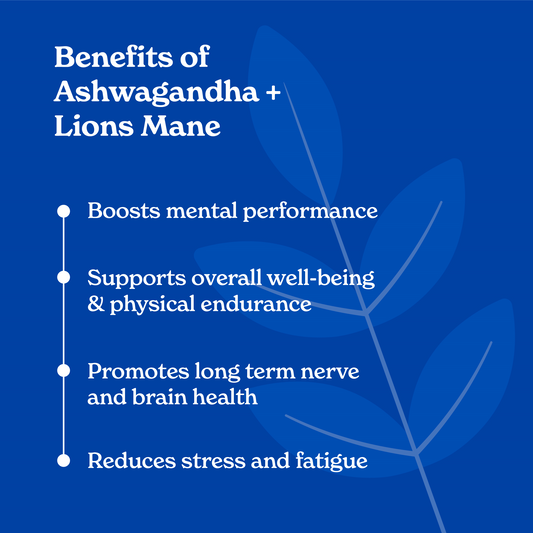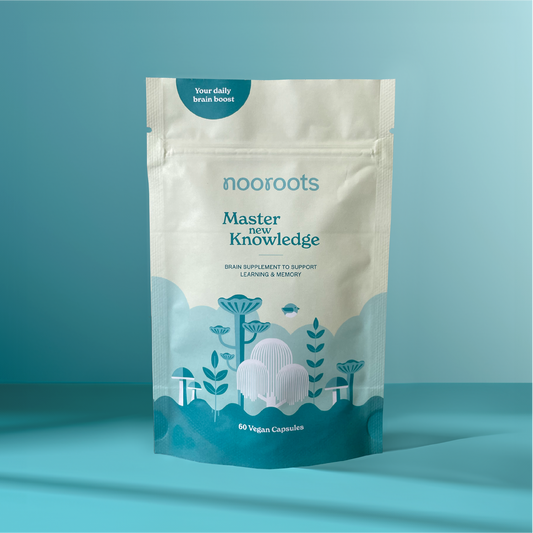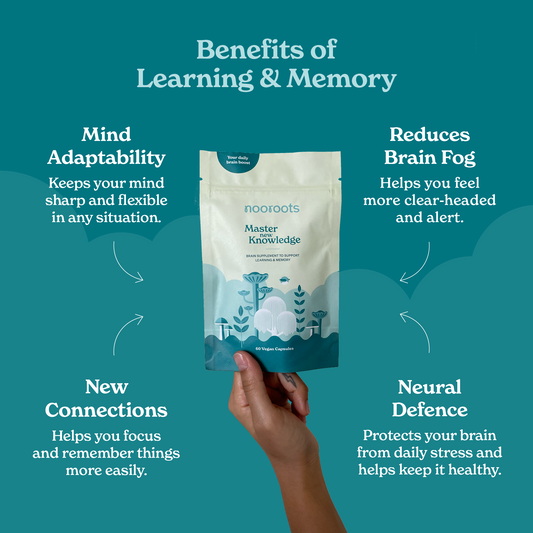Expert Writer and Contributor ✓
About the Author
Ellen holds a Batchelors of Science in Health Sciences and was awarded a Master of Science from UCL. She is the clinical specialist at Co-Labb.
About the Contributor
Mus was awarded a Master of Science degree in Medical Biotechnology and Business Management from the University of Warwick.
Tea is almost as old as the wheel and written language. Two central inventions in the human story and both credited to the Sumerian peoples of lower Mesopotamia. Tea is also roughly the same age as a crude early version of paper - first invented by the Ancient Egyptians.
In other words, Tea is as ancient as human civilisation itself.
The origins of tea finds it roots in a faraway place. A place inhabited by the peoples that introduced the world to silk, the compass and gunpowder. A land that remained closed to outsiders and cloaked in mystery and intrigue for millennia.
This is of course Ancient China. And in 2737 BC, after Emperor Shennong took a sip of his water, his taste buds detected something different. On closer inspection, Shennong found a dead tea leaf boiled inside his cup. The ensuing flavour, unique. Surprising. Refreshing. For the water had been completely transformed and did not taste like anything he, or anyone else, had experienced before.
Thus a new beverage was brewed.
Cha Jing meaning ‘The Classic of Tea’ was, at the time, a grounding book when it was written by Lu Yu during the Tang Dynasty in 800 AD. Unfortunately, it would not be for many centuries until tea became accessible to the masses - to savour its rich taste and enjoy the variety of health benefits it offers.
Transporting back to the present. In 1949, Dr Yajiro Sakato of the Ministry of Agriculture and Forestry in Kyoto (Japan), discovered a compound in tea that is thought to provide its beneficial qualities. For the first time, L-Theanine was isolated from green tea leaves and doing so ushered in a new lineage of research investigating the benefits of the second most consumed beverage in the world.
Contents
- What is L-Theanine?
- L-Theanine Benefits
- L-Theanine Mechanism of Action
- L-Theanine Side Effects
- Recommended Dosages of L-Theanine
- Best Natural Food Sources of L-Theanine
L-Theanine: A Health Guide to Safe and Effective Supplementation

What is L-Theanine?
L-Theanine is an amino acid found primarily in plants and tea. Its official name is γ-glutamylethylamide and it is a non-protein amino acid meaning it is not used as a building block in protein synthesis. L-Theanine can improve concentration and learning ability while also supporting relaxation1,2.
It has many associated health benefits including enhanced immune system function, prevention of cancer and promotion of healthy weight loss1. Even more, L-Theanine is known to boost neurotransmitters like serotonin and dopamine in our brain, therefore supporting better mood3,4 – what a win!
L-Theanine is not made in our bodies but luckily high concentrations of it are found in green tea and some mushrooms5.
L-Theanine Benefits
L-Theanine has tons of neurotropic properties. For example, it can
- Support concentration & learning: L-Theanine supplements improve visual information processing speeds, reduce mental fatigue and can speed up working memory6–8
- Reduce stress: L-Theanine has a relaxation effect that occurs within the brain and can decrease anxiety 2,4,9.
- Boost neurotransmitters: L-Theanine increases neurotransmitters such as serotonin and dopamine giving our brains a boost of the “happy” hormones!7
L-Theanine Mechanism of Action
L-Theanine has the very useful ability to cross the blood-brain barrier, and large part of L-Theanine’s amazing effects are caused by its ability to increase certain chemicals in the brain. It elevates levels of serotonin, dopamine and GABA10 - all of which play important roles in our cognition, mood and emotions.
Serotonin plays a vital role in mood, sleep and sexual desire while dopamine is crucial for mood regulation and pleasure systems. GABA is known to support neuronal excitability and can produce a calming effect which reduces feelings of anxiety or stress. Therefore, by boosting the levels of these neurotransmitters in our brain, L-Theanine can greatly enhance our overall cognitive function!
Even more so, L-Theanine can actually modulate our brain waves. Specifically, it can increase alpha brain waves which are related to mental relaxation and concentration11,12.
Studies have shown that L-Theanine can improve cognitive performance in specific challenging cognitive tasks such as task-switching and mental state examinations. L-Theanine improves attention, the building block for all cognitive tasks13. With this improvement comes an enhancement in working memory and executive functioning14,15.
L-Theanine Side Effects
Doses of L-Theanine have been safely used up to 900mg for 8 weeks16. There are possible mild side effects if you exceed this high dose. These could include:
- Headache
- Sleepiness
Recommended Dosages of L-Theanine
There is no set Nutrient Reference Value (NRV) or Safe Upper Limit (SUL) for L-Theanine.
Scientific and clinical research has outlined appropriate guidelines.
Data from a double-blind clinical trial with 69 people found doses of L-Theanine at 100.6mg/day can produce positive health benefits14. The US Food and Drug Administration states that daily consumption of l-theanine should not be greater than 1200 mg/day17.
Remember: if you are intaking a supplement in a product or in combination with other vitamins, minerals or plant extracts, then typically lower doses are sufficient to realize the desired benefits.
Learn More About NRV and SUL
The NRV and SUL are two values assigned to vitamins and minerals that are designed to provide guidance on how much of a specific nutrient can be consumed.
NRV can be defined as the amount of a specific nutrient needed to adequately meet known nutritional deficiencies. Whereas the SUL is the highest level of nutrient intake that is likely to pose no risk of bad health effects for almost all individuals in the general population.
It is very safe to consume levels of nutrients greater than the NRV as long as the intake is below the SUL.
At nooroots, we take both these values into consideration when performing research and product development. We work with our scientists and partners to select a nutrient level that is both safe and effective.
Best Natural Food Sources of L-Theanine
Some of the best natural sources of L-Theanine are Green and Black Tea. The green tea leafs richest in L-Theanine include: Gyokuro, Matcha powder green tea, and Sencha loose-leaf green tea.
L-Theanine is also found in the Bay Bolete mushroom that is common throughout Eurasia and North America.
Conclusion
Through trial and error, our ancestors experimented with an innumerable number of different unknown, potentially dangerous, plants and herbs. The attempt was to build a level of communal or societal knowledge that could improve the chance of survival by their future bloodlines. Or perhaps like Shennong, invention was but a chance encounter with nature.
The origin of different traditional human medicine (or beverages) are interesting for sure. But it doesn’t matter in the grand scheme of our human story. What is more fascinating is how our species can connect with nature, find a needle in a haystack (or a plant in a jungle), and use it to heal others.
The active ingredient in tea leaves, L-Theanine, is one of those incredibly rare discoveries that is so simple, yet so beneficial and effective for millions around the world. Research has shown L-Theanine to support concentration and learning, reduce stress, enable relaxation, and boost levels of feel good brain chemicals.
Human clinical studies have found L-Theanine to be effective at 100 mg. While the FDA warned above 1200 mg could lead to negative side effects.
For those interested in taking the first step, our Learning & Memory Nootropic Supplement at Nooroots offers a carefully formulated introduction to the world of cognitive enhancement—crafted to support both clarity of mind and balance of mood.
Learn more about the other vitamins, minerals and plant extracts we use to give your brain a daily boost
Evidence
- Vuong QV, Bowyer MC, Roach PD. L-Theanine: properties, synthesis and isolation from tea. J Sci Food Agric. 2011;91(11):1931-1939. doi:10.1002/jsfa.4373
- Juneja LR, Chu DC, Okubo T, Nagato Y, Yokogoshi H. L-theanine—a unique amino acid of green tea and its relaxation effect in humans. Trends Food Sci Technol. 1999;10(6):199-204. doi:10.1016/S0924-2244(99)00044-8
- Sarris J, Byrne GJ, Cribb L, et al. L-theanine in the adjunctive treatment of generalized anxiety disorder: A double-blind, randomised, placebo-controlled trial. J Psychiatr Res. 2019;110:31-37. doi:10.1016/j.jpsychires.2018.12.014
- Wang L, Brennan M, Li S, Zhao H, Lange KW, Brennan C. How does the tea L-theanine buffer stress and anxiety. Food Sci Hum Wellness. 2022;11(3):467-475. doi:10.1016/j.fshw.2021.12.004
- Williams JL, Everett JM, D’Cunha NM, et al. The Effects of Green Tea Amino Acid L-Theanine Consumption on the Ability to Manage Stress and Anxiety Levels: a Systematic Review. Plant Foods Hum Nutr Dordr Neth. 2020;75(1):12-23. doi:10.1007/s11130-019-00771-5
- Haskell CF, Kennedy DO, Milne AL, Wesnes KA, Scholey AB. The effects of l-theanine, caffeine and their combination on cognition and mood. Biol Psychol. 2008;77(2):113-122. doi:10.1016/j.biopsycho.2007.09.008
- Nathan PJ, Lu K, Gray M, Oliver C. The neuropharmacology of L-theanine(N-ethyl-L-glutamine): a possible neuroprotective and cognitive enhancing agent. J Herb Pharmacother. 2006;6(2):21-30.
- Higashiyama A, Htay HH, Ozeki M, Juneja LR, Kapoor MP. Effects of l-theanine on attention and reaction time response. J Funct Foods. 2011;3(3):171-178. doi:10.1016/j.jff.2011.03.009
- Kimura K, Ozeki M, Juneja LR, Ohira H. l-Theanine reduces psychological and physiological stress responses. Biol Psychol. 2007;74(1):39-45. doi:10.1016/j.biopsycho.2006.06.006
- Nathan PJ, Lu K, Gray M, Oliver C. The Neuropharmacology of L-Theanine(N-Ethyl-L-Glutamine). J Herb Pharmacother. 2006;6(2):21-30. doi:10.1080/J157v06n02_02
- Kobayashi K, Nagato Y, Aoi N, et al. Effects of L-theanine on the release of alpha-brain waves in human volunteers. J Agric Chem Soc Jpn Jpn. Published online 1998. Accessed May 12, 2022. https://scholar.google.com/scholar_lookup?title=Effects+of+L-theanine+on+the+release+of+alpha-brain+waves+in+human+volunteers&author=Kobayashi%2C+K.+%28Taiyo+Kagaku+Co.+Ltd.%2C+Yokkaichi%2C+Mie+%28Japan%29%29&publication_year=1998
- Song CH, Jung JH, Oh JS, Kim KS. Effects of Theanine on the Release of Brain Alpha Wave in Adult Males. Korean J Nutr. 2016;36(9):918-923.
- Dassanayake TL, Kahathuduwa CN, Weerasinghe VS. L-theanine improves neurophysiological measures of attention in a dose-dependent manner: a double-blind, placebo-controlled, crossover study. Nutr Neurosci. 2022;25(4):698-708. doi:10.1080/1028415X.2020.1804098
- Baba Y, Inagaki S, Nakagawa S, Kaneko T, Kobayashi M, Takihara T. Effects of l-Theanine on Cognitive Function in Middle-Aged and Older Subjects: A Randomized Placebo-Controlled Study. J Med Food. 2021;24(4):333-341. doi:10.1089/jmf.2020.4803
- Giesbrecht T, Rycroft JA, Rowson MJ, De Bruin EA. The combination of L-theanine and caffeine improves cognitive performance and increases subjective alertness. Nutr Neurosci. 2010;13(6):283-290. doi:10.1179/147683010X12611460764840
- WebMD. THEANINE: Overview, Uses, Side Effects, Precautions, Interactions, Dosing and Reviews. Accessed May 12, 2022. https://www.webmd.com/vitamins/ai/ingredientmono-1053/theanine
-
Evans, M. et al. (2021) ‘A Randomized, Triple-Blind, Placebo-Controlled, Crossover Study to Investigate the Efficacy of a Single Dose of AlphaWave® l-Theanine on Stress in a Healthy Adult Population’, Neurology and Therapy, 10(2), pp. 1061–1078. Available at: https://doi.org/10.1007/s40120-021-00284-x.







